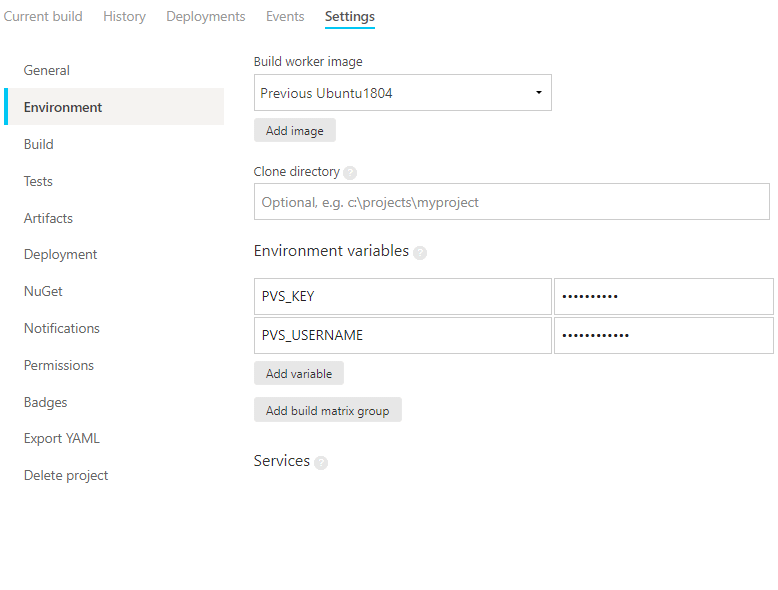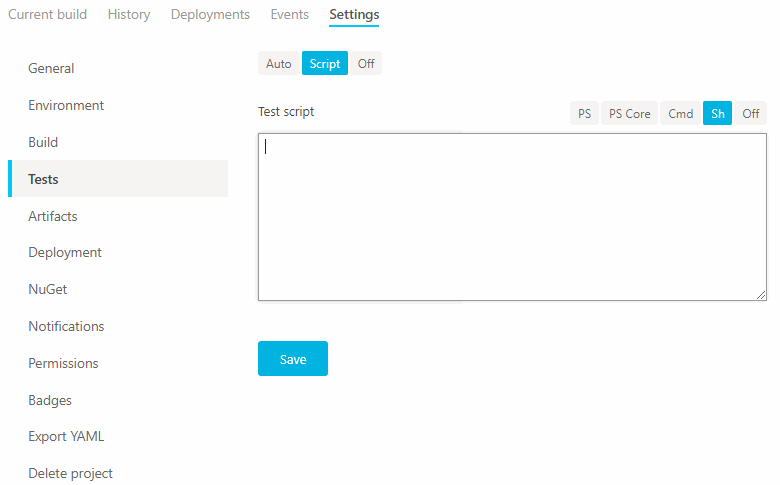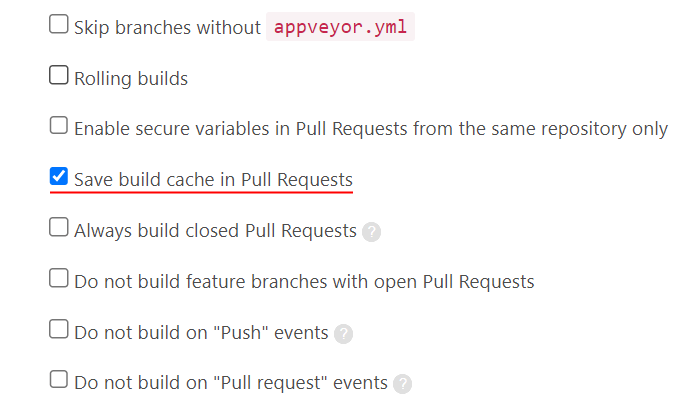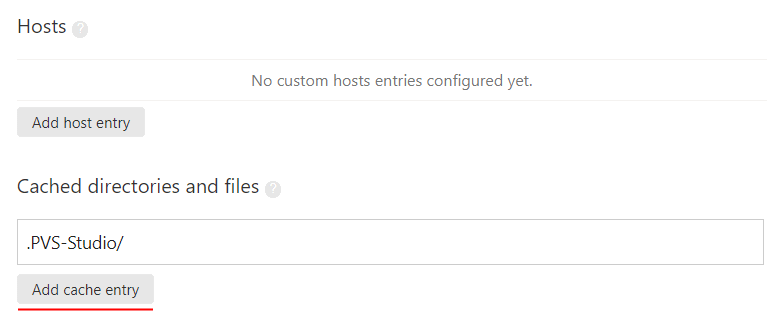Running PVS-Studio in AppVeyor
AppVeyor is a continuous integration web service. It is designed to build and test software located on GitHub and a number of other source code storage services.
This documentation describes an example of the PVS-Studio integration for analyzing C and C++ code. The commands to run PVS-Studio for analyzing C# or Java code will be different. Please consult the following documentation sections: "Analyzing Visual Studio / MSBuild / .NET projects from the command line using PVS-Studio" and "Direct use of Java analyzer from command line".
General Settings
You need to set the environment variables that will generate the license file. To do this, go to the desired project, open the 'Settings' tab. In the sidebar that appears, go to the 'Environment' tab. Next, add two variables — 'PVS_KEY' and 'PVS_USERNAME':

They will contain the license key and the analyzer username associated with the key, respectively. These variables are needed to check the analyzer license.
Running PVS-Studio in AppVeyor by example of the C++ project
Analysis of the entire project
To run the analysis, you need to add a script. To do this, go to the 'Tests' tab in the sidebar, click 'Script' in the window that appears:

In the form that appears, add the following code:
sudo apt-get update && sudo apt-get -y install jq
wget -q -O - https://files.pvs-studio.com/etc/pubkey.txt \
| sudo apt-key add -
sudo wget -O /etc/apt/sources.list.d/viva64.list \
https://files.pvs-studio.com/etc/viva64.list
sudo apt-get update && sudo apt-get -y install pvs-studio
pvs-studio-analyzer credentials $PVS_USERNAME $PVS_KEY
PWD=$(pwd -L)
pvs-studio-analyzer analyze -j8 \
-o PVS-Studio.log \
--disableLicenseExpirationCheck
plog-converter -t errorfile PVS-Studio.log --cerr -wNote. Assigning the value of the 'pwd' command to the '$PWD' variable is necessary for the analyzer to work correctly, since AppVeyor modifies the variable to a different value for its service purposes.
The result of the project analysis will be saved to the 'PVS-Studio.errorfile' file.
Documentation on the utilities used:
Pull requests analysis
To analyze pull requests, you need to make additional settings.
On the 'General' tab, enable the build cache saving in Pull Requests (the checkbox is located at the bottom of the page):

Next, go to the 'Environment' tab and specify the folder for caching (the field for adding is at the bottom of the page):

Without this setting, the entire project will be analyzed.
To run the analysis, you need to add a script. To do this, go to the 'Tests' tab in the settings panel, click 'Script' in the window that appears:

In the form that appears, add the following code:
sudo apt-get update && sudo apt-get -y install jq
wget -q -O - https://files.pvs-studio.com/etc/pubkey.txt \
| sudo apt-key add -
sudo wget -O /etc/apt/sources.list.d/viva64.list \
https://files.pvs-studio.com/etc/viva64.list
sudo apt-get update && sudo apt-get -y install pvs-studio
pvs-studio-analyzer credentials $PVS_USERNAME $PVS_KEY
PWD=$(pwd -L)
if [ "$APPVEYOR_PULL_REQUEST_NUMBER" != '' ]; then
PULL_REQUEST_ID="pulls/$APPVEYOR_PULL_REQUEST_NUMBER"
MERGE_BASE=`wget -qO - \
https://api.github.com/repos/${APPVEYOR_REPO_NAME}/${PULL_REQUEST_ID} \
| jq -r ".base.ref"`
git diff --name-only HEAD origin/$MERGE_BASE > .pvs-pr.list
pvs-studio-analyzer analyze -j8 \
-o PVS-Studio.log \
--disableLicenseExpirationCheck \
--dump-files --dump-log pvs-dump.log \
-S .pvs-pr.list
else
pvs-studio-analyzer analyze -j8 \
-o PVS-Studio.log \
--disableLicenseExpirationCheck
fi
plog-converter -t errorfile PVS-Studio.log --cerr -wNote. Assigning the value of the 'pwd' command to the '$PWD' variable is necessary for the analyzer to work correctly, since AppVeyor modifies the variable to a different value for its service purposes.
If the pull request is analyzed, the difference between the branches will be obtained. After that, the analysis for the modified files will start. Otherwise, the entire project will be analyzed.
The result of the project analysis will be saved to the 'PVS-Studio.errorfile' file.
Documentation on the utilities used:
Here is the documentation on the analysis of the pull/merge requests.
